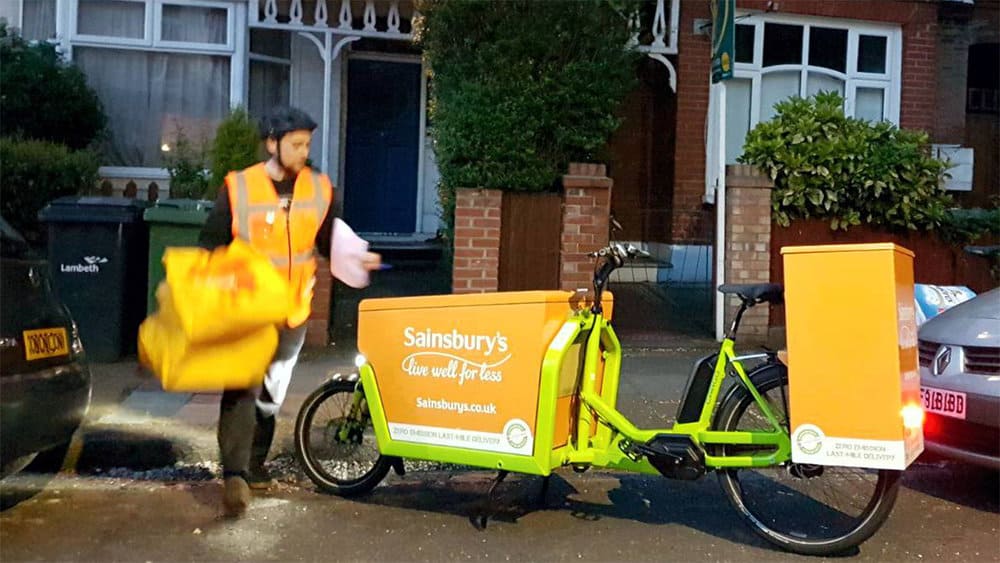
In the U.K., the Department of Transport (DoT) has partnered with the Energy Saving Trust and set up a new £2 million fund targeted at increasing the electric last-mile cargo bike count on its roads. Currently, several U.K. cities are burdened by excessive clogging of their streets, especially during the peak hours, and replacing last-mile cargo vans with electric bikes would help ease the pressure a bit.
“Funding to support the adoption of e-cargo bikes by businesses in England and enable low-carbon last-mile delivery across the country is a positive step in improving local air quality, tackling road traffic congestion, and reducing transport operating costs. Applicants can benefit from grant funding for up to 20 percent of the cost of a new e-cargo bike up to the value of £1,000 per bike,” said Matthew Eastwood, head of transport at Energy Saving Trust.
Countries around the world are looking to reduce their carbon footprint, as the concern around climate change is increasing in relevance every day. The spotlight unequivocally has been on the transportation industry at large, and the freight hauling industry in particular. Several governing organizations are taking a stand to consciously reduce greenhouse gas emissions, like the International Maritime Organization (IMO) for instance.
The IMO’s sulfur-cap regulation that goes into effect on January 1, 2020, would force container ships to use cleaner fuel with much-reduced sulfur content. Container vessels are some of the most polluting vehicles in the world, with one large vessel producing emissions the equivalent of 50 million cars. Effecting a change in how the maritime industry operates will have an inordinately large impact on the global warming rhetoric.
That said, the issue with last-mile delivery is equally about the inconvenience to regular commuters as it is about reducing freight movement’s carbon footprint. London for instance, has actively looked at implementing low emission zones within the city boundaries to stifle the movement of older, high-polluting vehicles. Mayor Sadiq Khan established an Ultra-Low Emission Zone (ULEZ) that will kick in by 2021. Within the ULEZ drivers of older vehicles will have to spend $16 every day if they want to commute within the zone.
A recent report on London’s emissions suggested that if the city can double its current cycling population, then Londoners collectively would spend 21,000 fewer hours waiting in traffic every day. To make this a reality, London will require extensive bike lanes and charging infrastructure for e-bikes – a scenario that would mean the infusion of an estimated 81,000 to 163,000 more e-bikes within city limits.
In line with the city’s efforts, the ‘eCargo Bike Grant Fund’ is looking to induce the habit of reducing the overall carbon footprint by financing companies that are striving to put electric cargo bikes on English streets.
“This new fund for e-cargo bikes will help to cut congestion, improve air quality and encourage companies to play their part in creating a cleaner, greener future,” said Jesse Norman, minister for cycling and walking at the DoT. “Supporting more sustainable deliveries is just one of the positive steps this government is taking towards a zero-emission world.”
The funding is now made available to limited companies, sole traders, partnerships, charities and not-for-profit organizations operating across the country. The funds will be released only if the recipients sign a robust code of practice developed in partnership with the U.K. Cycle Logistics Federation and the Bicycle Association, which includes the best practices to be followed for cycle safety. Applications for funding are now available and will be entertained on a first-come, first-serve basis.










